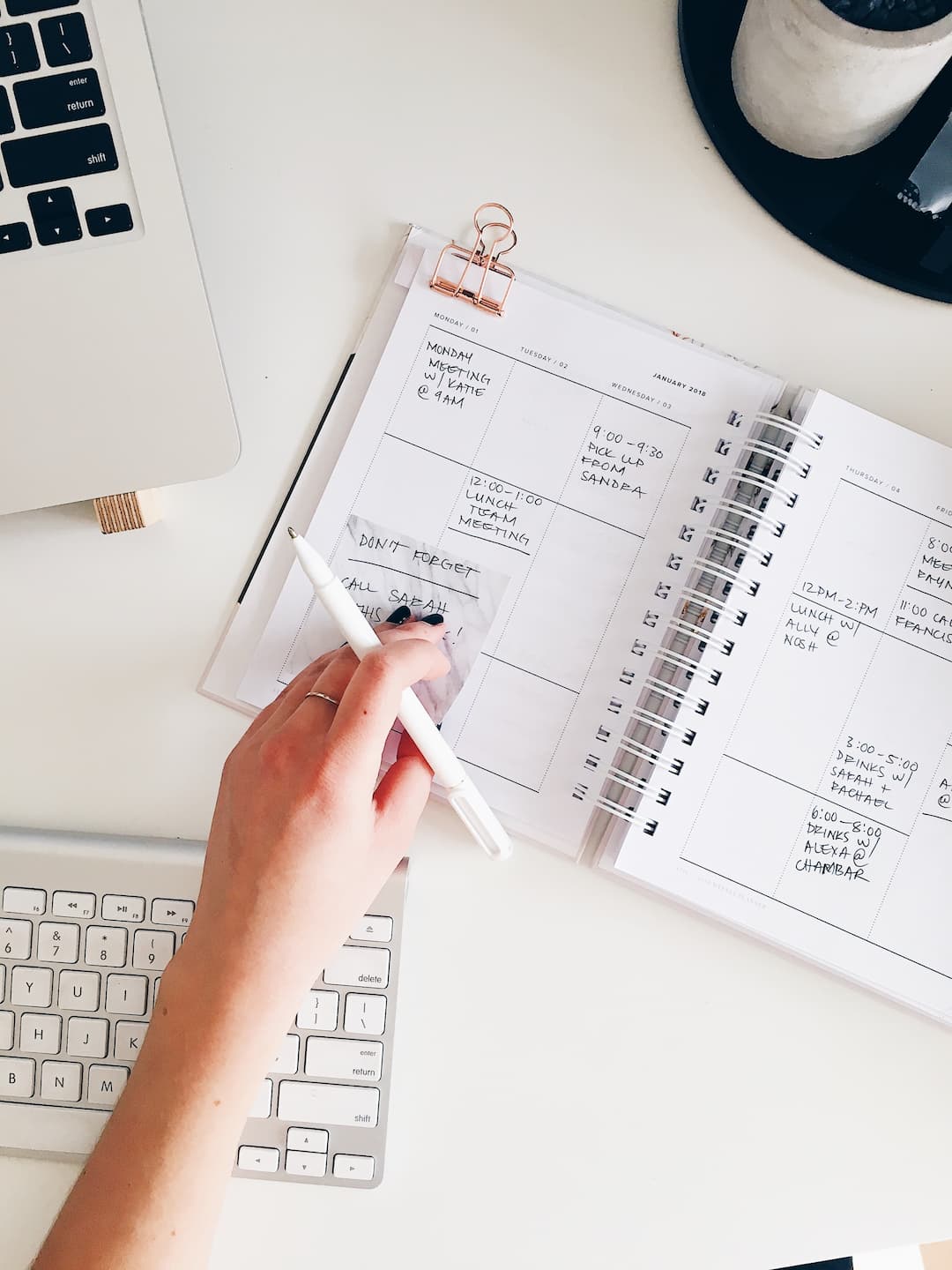




Is it common for you to lose track of time throughout the workday? You set out each day intending to accomplish a mountain of work, only to find yourself distracted by side quests and eventually giving in to plain old procrastination. So, how can you get back in charge of your schedule? We will discuss methods to increase productivity at work that can be modified to meet your unique character and work habits.
Reasons Why Productivity Suffers
Before we can look at what we can do to improve our productivity, it’s important to spot the culprits that sidetrack us and nip them in the bud. While some things may be easily avoidable, some need external help to control.
- Productivity decreases when there is no well-defined plan of action. When people aren’t given clear objectives, they may become bogged down in their own work or focus on matters that have little to do with advancing the company’s mission. Employees often report feeling overloaded and unsure of where to begin.
- The inability of managers to communicate effectively is a factor that contributes to low output. Workers thrive when they have both direction and consistent feedback on their progress. Managers should be approachable when employees have inquiries regarding project objectives or duties, and they should offer clear instructions when asked.
- Social media, texting, instant messaging, and other forms of constant alerting can easily consume a person’s time. It’s not surprising that productivity has dropped as the prevalence of digital devices has increased.
- It’s not uncommon for workers to have trouble maintaining productivity due to simple boredom. They may find their job boring or tedious, making it more challenging to complete tasks.
- Work that is too challenging or complex can have the same effect. People often put things off till later when they perceive the task at hand to be too challenging. They look for reasons not to begin or divert their attention to simpler, less time-consuming chores. Because of this, essential tasks are not completed, and productivity plummets.
- The biggest culprit of all is the poor time management skills of employees and managers. Adding fuel to the fire is the lack of energy management from the workers. We can assume that workers have five hours of alert mind-space to give to work, but due to hybrid and flexible working systems, many workers end up using part of this time for other non-work related tasks.
- Hindering work productivity on a very basic level is workplace ambiance. Working on the kitchen counter is as effective as working in a coffee shop. There are too many distractions, and it is impossible to focus. Offices that don’t provide or allocate appropriate working stations to their employees cannot expect them to put in 100% at work.
Working Efficiently
No matter the role you play in the company, a few hours of efficient work will compensate for your slacking off at other times. But that means you have to be 100% mindful of the work you’re doing during these efficient hours. So how should you stay efficient?
Productivity Tips: Keep a clean desk
Yes, this sounds obvious, but it needs to be said. Before you get in the zone, make sure your zone is decluttered and void of distractions. A good workstation like the ones you find in Offispace will ensure your work will have an atmosphere of its own. This makes it easy to focus on work and ignore the world collapsing in on itself. While you’re at it, turn off notifications on your phone for low-priority emails and messages to avoid the temptation to check them. That wasn’t difficult, was it? Moving on…
Productivity Tips: Set daily priorities
Take a few moments to organize your day’s tasks before you go in headfirst. Make a priority list based on due dates and task importance, and work your way down it. Bear in mind that you will not be able to work through high-priority tasks one after the other like a machine. Sneak in simpler tasks between them to keep yourself from mental exhaustion. Organizing your workday into manageable chunks will help you get more done in less time.
Productivity Tips: Avoid multitasking
It’s tempting to try to multitask to get everything done, but in reality, doing so might have a negative impact on working more efficiently. You’ll waste time and energy trying to do too much at once. In fact, even while performing mundane and repetitive tasks, it is best to avoid listening to podcasts or watching your favorite show, as it could mess up your work. Instead of taking the extra time to fix errors, do things right the first time!
Productivity Tips: Maintain a deadline and meetings tracker
How many times have we entered a meeting unprepared because we were too busy working on a different task? It reflects poorly on our time management skills and keeps us from getting that sweet promotion. Keeping a calendar of your meetings and deadlines will help you remain on top of your job and avoid last-minute panic.
Remaining Productive Throughout the Day
Now this is where it gets challenging. As more children grow into adults with undiagnosed ADD, it gets increasingly difficult to keep a room full of focused workers. But even with the attention and focus issues, there are a number of things that help us stay on track and get work done without a hassle.
Productivity Tips: Tidy up your digital workspaces
Folders and files are useful tools for streamlining and organizing your digital and physical workspace. Getting organized is the first step. There needs to be a system in place where everything has a home, and everyone knows where to find it. It’s far more practical to have all of your files, emails, tasks, and contacts in one location.
Productivity Tips: Keep track of your notes and tasks
Just making a list of things to do won’t get them done; at best, it will serve as a reminder to increase productivity. There will be less danger of forgetting to do something if you use a notepad or a smartphone app to keep track of your notes and chores. So that they don’t get lost in your inbox, you may also jot reminders down in your planner or on post-it notes.
Productivity Tips: Treat yourself after a job well done
Using a reward system is one of the most efficient methods of maintaining productivity on the job. You need a personal motive to use a reward system successfully. It doesn’t have to be monetary; it may be anything that motivates you to work, such as doing something you enjoy, like ordering your favorite food or treating yourself to a cup of coffee. To boost your productivity when performing your daily activities or during work hours, it is vital to set a task before allocating a reward to yourself.
Productivity Tips: Take frequent breaks
When we’re weary from working too hard or for too long, our productivity drops. Taking breaks before you feel overwhelmed is a great way to enhance your productivity at work and prevent burnout. Don’t feel guilty about scheduling some me-time during the workday; there’s plenty of time for meditation in your regular routine. Take some time out of your day to sit quietly and think about the things in your life and job that are going well and the things that could use improvement.
Start prioritizing your health, happiness, and wellness at work so you can better handle stress when it arises. With this knowledge, you’ll be able to make better choices about how to overcome obstacles and advance toward your goals.
Productivity Tips: Delegate if your work allows it
In the office, we all have a fair amount of work that must be completed by a certain date. However, despite our best intentions, we frequently find ourselves working past our normal cutoff time or even taking unfinished tasks home with us. Never forget that you can get help from others when you’re in a jam like this. You can entrust some of your work to other people.
Productivity Tips: Track your time
You can probably attribute some of your feelings of inefficiency to the fact that you don’t have a time-monitoring app. By keeping track of your time, you can determine how much of it you devote to each project. To maintain or improve concentration, it’s best to have a tracker to let you know you’re on time or falling behind. Now this could be a cause of anxiety to most people, so set the way your tracker speaks to you. Have gentle reminders of the passing of time instead of a hit on the head.
Productivity Tips: Set short-term objectives
Setting short-term, manageable goals is a great strategy to boost productivity on the job. Those who achieve their goals are more productive than those who don’t, according to the research. This is because having an end in sight keeps you motivated and increases your output at work by helping you better manage your time and resources. Whether the goals are large or small, always be on the lookout for ways to keep working productively.
Productivity Tips: Take a stroll
Exercising not only benefits you physically, but it also helps your productivity at work. Regular exercise has positive effects on mental well-being and concentration—a wonderful method for improving one’s mental clarity and output!
Conclusion
Do you feel like you’re not making as much progress as you once did, no matter how hard you try? Finding alternative ways to define and quantify productivity is essential in the post-Coronavirus era of normalcy. If you ever feel like a lazy slacker who hasn’t accomplished their daily tasks, cleaning your Offispace workstation and reading over your notes will offer you a much-needed boost of motivation and encouragement and remind you to enjoy your successes.
